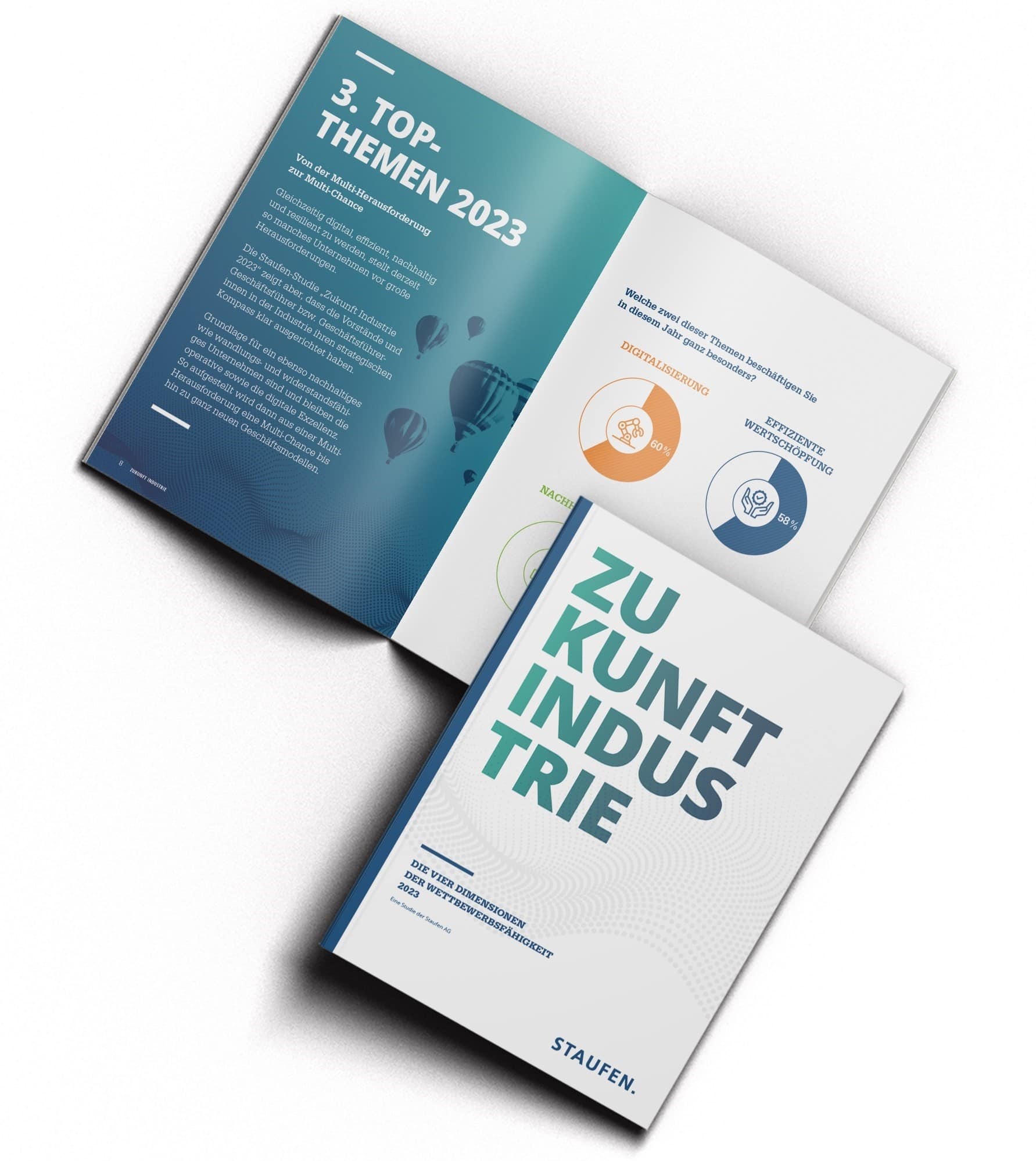
According to the latest “Future Industry 2023” study, 62 percent of industrial companies in the DACH region have set themselves the goal of becoming carbon neutral within the next ten years. However, the energy and heating savings are not only intended to reduce greenhouse gas emissions, but also to reduce costs. However, to continuously reduce their own carbon footprint, companies need a comprehensive sustainability strategy to decarbonize their entire value chain. For the study, management consultants Staufen surveyed more than 400 industrial companies in Germany, Austria and Switzerland.
No industrial company will be able to avoid the topic of sustainability in the coming years. On the one hand, national and European regulations and directives impose extensive reporting requirements. On the other hand, investors and customers are exerting pressure: “They are increasingly demanding sustainable products from the industry,” says Dr. Björn Falk, Principal at Staufen AG. “And as employers, sustainable companies can also do better with young talent.” The message has been heard in the business community. For nine out of ten companies, sustainability is the foundation for future business success. However, there is a significant gap between the claim of carbon neutral production in the future and the reality for the majority. 78 percent of the companies surveyed for the Staufen study admit that they still have a lot of untapped environmental potential.
“In times when cost reductions are inevitable, many companies initially focus on quick wins in electricity and heat consumption,” says Björn Falk. For seven out of ten companies (72%), saving energy in their operations is the biggest lever, while 56% also see sustainability potential in a CO2-neutral energy supply, for example by installing a photovoltaic system on the factory roof. Björn Falk: “Through such cost-cutting programs, they can achieve a reduction in their carbon footprint as a sort of side effect, which they can then document in their sustainability report.”
Carbon neutrality: Sustainability reports alone are not enough

At the same time, the Staufen expert warns: “A sustainability report alone does not make a company carbon neutral. The report documents the situation. But if you want to report success in reducing your emissions year after year, you need a comprehensive sustainability strategy to decarbonize your entire value chain. Or you will have to buy expensive carbon offsets in the coming years.”
The foundation for sustainability is lean, digitized processes and centrally consolidated data. However, the study shows that many companies have some catching up to do when it comes to a structured approach to sustainability. Only half of them calculate their current carbon footprint using not only their own measurements but also data from suppliers and customers. “Whether it’s optimizing transportation routes, packaging methods, manufacturing processes, or recycling strategies, most companies are still lone wolves,” says Björn Falk. Even when it comes to awarding contracts, the sustainability of suppliers does not yet play a major role: Only four out of ten companies prioritize “green” suppliers. However, there are differences between the industries. Just under half (48%) of companies in the automotive industry already consider the sustainability of their suppliers to be an important criterion when awarding contracts, while only just over a quarter (28%) of companies in the mechanical engineering sector consider it to be important.
Your contact person concerning sustainability
“In many companies, sustainability is still perceived primarily as a cost factor. But those who hesitate are missing the opportunity to position themselves as innovators in their industry with social and ecological issues and to expand their own market share,” says Staufen consultant Falk.

You might also be interested in

Estudio: Industria del futuro
¡Cómo se está posicionando la industria para el futuro! Nuestro nuevo estudio sobre digitalización, eficiencia, sostenibilidad y resiliencia.
Leer más


